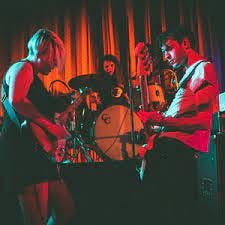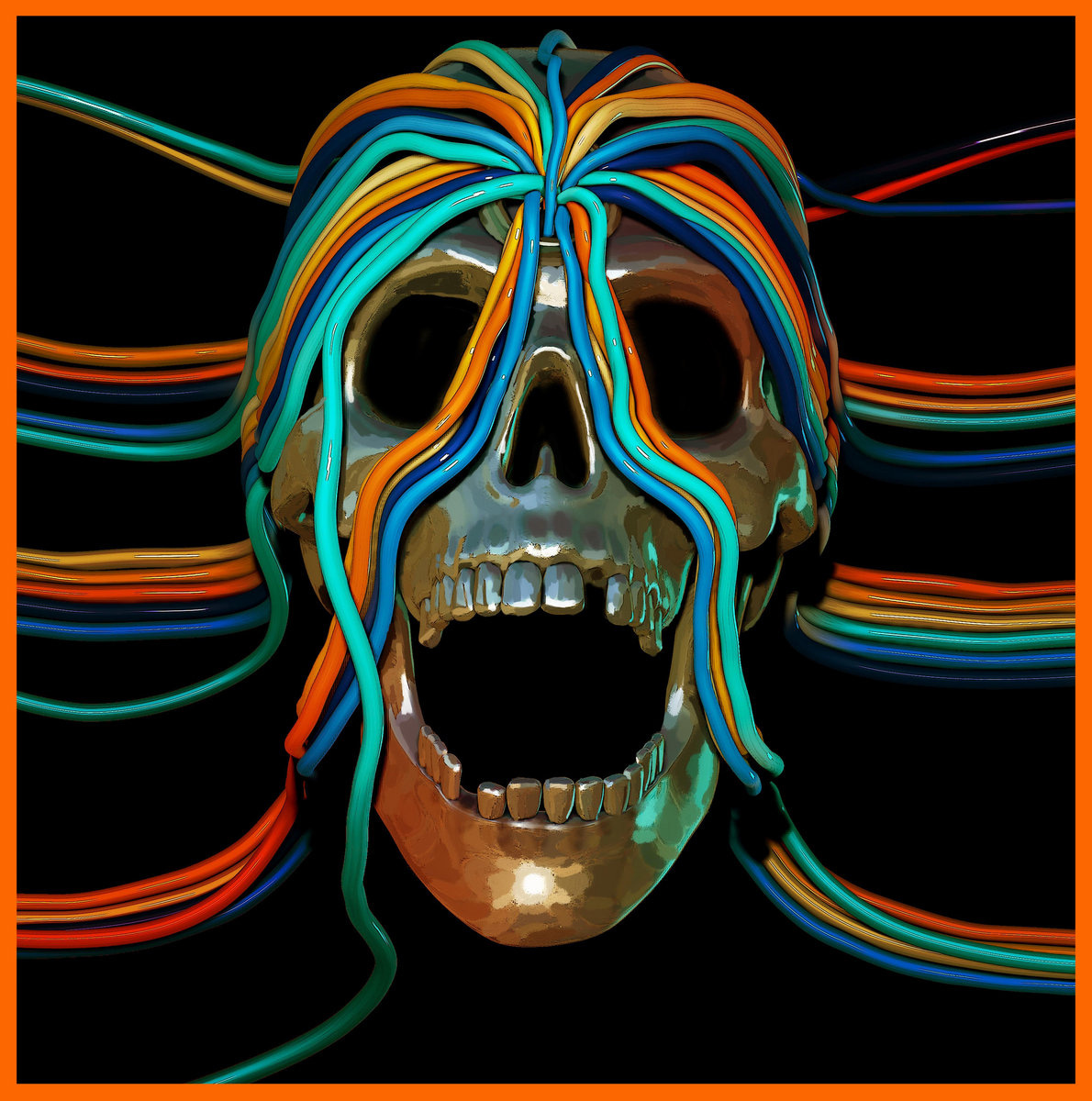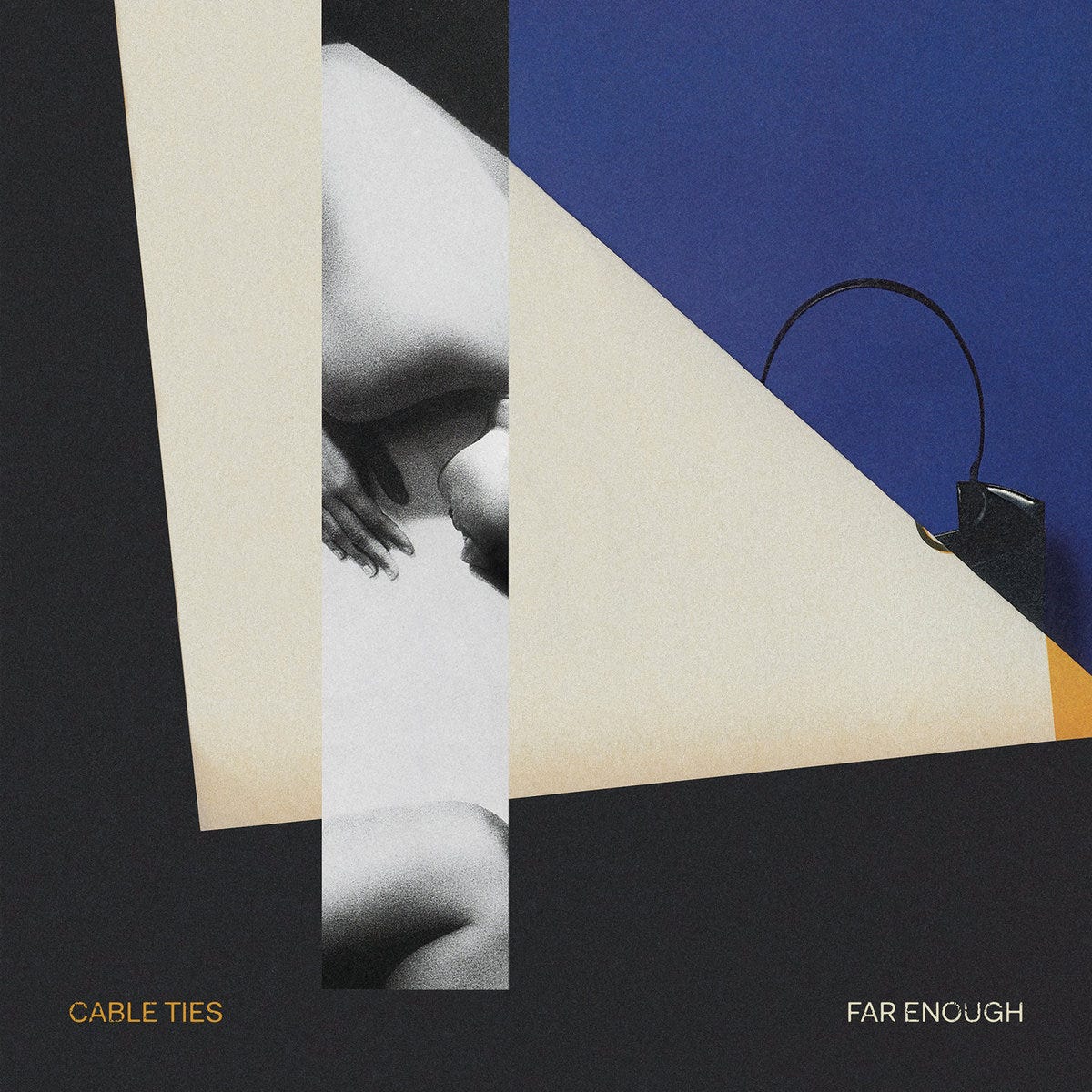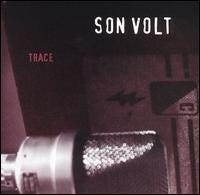Osees, Cable Ties, and 14 Classic Songs About the Radio (yes, the radio)
Summer has unofficially ended, and 4 of the 6OGs are dealing with a new rite of Old Guy passage, with our teenagers no longer having to be quite embarrassed when we take them to shows; now they have to pay their own covers at college or on gap years. Luckily, we have music to keep us company at home, and we bring you some exciting new music from the Bay Area, Melbourne, and a review of some of the best songs ever about the radio. Which is apt, with OG Brad and OG Marc recently starting a new radio show on WOWD-LP in Takoma Park but streaming live every other Sunday from 12-1pm Eastern (sharing the slot on alternate weeks with OG-at-heart Sarah B).
New album: Intercepted Message by Osees. I’ll get right to it – Osees are an acquired taste. They are daring and experimental, but a little abrasive. They put the garage in garage-rock and the psychedelic in psych-rock. Not everyone’s cup of tea. Since 1997, the Bay Area band has performed or recorded under numerous names – Orinoka Crash Suite, OCS, Orange County Sound, The Ohsees, Thee Oh Sees, Oh Sees, and since 2019, Osees. They released their first album in 2003 and, to paraphrase fellow OG Brad, have released 59 albums since (it’s actually 27, still a stunning number; 34 if you count live albums). They’ve also had roughly 40 band members (it’s actually 16, and Osees have maintained the same lineup since 2018). But the one constant has been John Dwyer, a Bay Area multi-instrumentalist/singer/songwriter/oddball (he also releases solo albums under the name “Damaged Bug”).
I didn’t really get into this band until the early 2010s when they released three phenomenal albums in a row – Carrion Crawler/The Dream, Putrifiers II, and Floating Coffin, all under the Thee Oh Sees moniker. As a certified old guy, it’s tough to keep up with a band that seemingly releases new albums every 20 minutes. But when I heard that a new album was to be released on August 18, I had to check it out. It reminds me of the albums that first brought me to Osees. It rocks, it grooves, it can be confounding, it can be surprising.
In short, it’s wonderful.
As with most of Osees’ catalog, Intercepted Message is sprawling in both tone and influence. Album opener “Stunner” is full-throttle garage-rock, with the guitars and keyboards both front and center, complementing each other. It’s followed by “Blank Chems,” another burst of garage-rock with more distortion, more psychedelia, and a prominent heavy bass line. This sound continues later in the album with “Goon,” the album’s first single, which somehow manages to be even more ferocious than the first two tracks. The album’s title track combines multiple genres into one song – it starts off like early ‘80s new wave (for some reason, the first thing I thought of was The Vapors’ “Turning Japanese”) but where there would normally be a chorus, instead Dwyer gives us blistering guitars with no lyrics.
“Die Laughing” is also an amalgam of styles – electronica, disco, funk, R&B, and a little industrial, all over Dwyer’s muted and distorted vocals. “The Fish Needs a Bike” – which hilariously begins with Dwyer screaming “Stop! Fuck!” – is a noise jam with nonsensical, repetitive lyrics, immediately recalling Pavement’s “Conduit for Sale!” from Slanted and Enchanted. Osees are their most melodic on “Unusual & Cruel,” while “Chaos Heart” shows Dwyer venturing close to straightforward accessible rock territory, a la Sonic Youth’s “100%” or Guided By Voices’ “Glad Girls.” If you were to put Kraftwerk and Joy Division in a studio together, it’s possible you’d get a song like “Submerged Building.” “Sleazoid Psycho” has Osees sounding like an angry “Meet Me in the Bathroom”-era band, only with more growling from Dwyer and snippets of keyboards, which, while thankfully not overbearing, sound more than a little influenced by ‘70s prog.
My only criticism of the album is the last two songs – “Always At Night” and “LADWP Hold.” Both sound like rejects from the Pretty in Pink soundtrack. I respect Dwyer’s willingness to experiment with sound, but I want Osees, not OMD.
As a certified old guy, it’s tough to keep up with a band that seemingly releases new albums every 20 minutes. But when I heard that a new album was to be released on August 18, I had to check it out…It rocks, it grooves, it can be confounding, it can be surprising. In short, it’s wonderful.
The last two songs keep this album from reaching perfection, but Dwyer’s gonna Dwyer. I have no doubt he couldn’t care less what I think. Or what anyone else thinks, for that matter. Dwyer has always made music on his terms. Sometimes it works, and sometimes it doesn’t. In the case of Intercepted Message, it really works, and stands with some of Osees’ best albums. Hopefully, as in the early 2010s, this will continue on Osees’ next album, which I expect to be released next week. (Brian)
Album from an upcoming/recent live show: Far Enough by Cable Ties. In March 2020, I was most excited about two bands: Porridge Radio (who I wrote about in my Best of 2022 list) and Cable Ties, from what feels like the world’s best music scene: Melbourne, Australia. The latter released this album on Merge Records in late March, and the single “Sandcastles” was generating a lot of buzz.
Then the world shut down. And I wondered for a long time whether that was the end of Cable Ties. If they were the indie rock version of Brian Mazone, a pitcher who got called up to the major leagues by the Phillies in 2006, only to have his scheduled start rained out. He then got sent back to the minors and never got another shot. Just replace “rainout” with “pandemic,” I feared.
But unlike Brian Mazone, Cable Ties are getting another shot, with the June 2023 release of All Her Plans. It’s a solid record, but after a few listens, I have found myself just going back to their previous one, if only for the first three and last songs.
The opening track brings another comparison to Porridge Radio, with an opening track, “Hope,” that feels somewhat like a precursor PR’s opener, “Back to the Radio,” from its last album. An intense opening guitar riff, verse, and chorus from lead singer Jenny McKechnie that establishes the tone of the album and demands your attention before opening up into a remarkable, almost second song-in-one. She also shows the lyrical acumen, humor, and fatalism of fellow Australian artists Courtney Barnett and the recently-broken-up Camp Cope:
“My uncle Pete, he's complaining 'bout the greenies/He says that they have gone too far, I say Pete/They don't go far enough/I'm back in Melbourne, I'm not doing the best
I can/On bad days I'm a parasite/on my good days, I say at least I tried/I'm getting asthma as I run for the train/Is it genetic from my family or is it just harder/To breathe these days?”
Then after repeating the more optimistic, or at least refusing to be pessimistic, refrain — “And it might be hopeless but if I lose hope/I bring on that ending” — the song takes off. The rhythm section announces itself with a perfect drum beat, and you’re on a ride that kicks and swings and feels like it must have been one of McKechnie’s good days. “Tell Them Where to Go” and “Sandcastles” keep up the intensity, the swing, and the kick, forming perfect blends of indie, punk, and just straight-ahead rock and roll. The chorus to “Sandcastles” is built around the chorus, “You don't do anything because you know that people like you they/Just don't do anything at all but tear each other down.” It’s hard to think of a song about tearing people down that builds the listener up quite as much.
The album drifts in the middle, with moments like an extended instrumental during “Lani” and in “Self-Made Man,” a lesser version of some of the songs taking down the patriarchy that have come from just the likes of the aforementioned Camp Cope and Barnett (start with the former’s “The Opener”). But then the album closer, “Pillows,” redeems the album with this powerful and band-defining opening:
“Face down, down in my pillow I'm biting feathers to fight my terror/I've gone to thinkin' again about what/I've done and where I should have been/And I know that I'm only 25 and my mother says that my future's bright/But I can't stop thinking how I fucked it up and I can't turn back now.” As with the other songs that leave a mark on you, the intensity only deepens as the track goes on, but it never sacrifices the swing.
Cable Ties are on tour now, opening for their Merge Records bosses Superchunk; they play Baltimore’s Ottobar on September 9. Hopefully they are in the big leagues for a long time to come. (Brad)
Album(s) being rediscovered (at least 10 years old): There’s a common sentiment among directors, actors, and writers in Hollywood (notwithstanding the strikes, which of course I support) that for certain types of movies geared toward adults, there is a benefit to setting stories in the decades prior to the internet or the cell phone. The reason most often cited is that, too often, there is less potential for drama or suspense when a character can resolve a problem using Google or GPS. This same rationale can also be applied to the world of music. From the early days of rock and roll through the ‘90s, artists would frequently write songs about the radio. And while this continued somewhat into the early 2000s, the dominance of streaming has clearly made this a less relevant subject for songwriters.
With all that in mind, I’m going to do something a little different for this revisit. I’m going to give a list of some truly great songs about the radio. Not the best, not even necessarily my favorites (although some of them very much are). Just a list of songs in no particular order that, in the height of irony, could form the basis of a terrific playlist of songs about the radio. Side note: I’ve arbitrarily decided to not include the following: “Radio, Radio” by Elvis Costello; “Radio Ga-Ga” by Queen; “This is Radio Clash” by The Clash; “Panic” by The Smiths; “Video Killed the Radio Star” by Buggles; and “Mexican Radio” by Wall of Voodoo. I like most of these songs (except Radio Ga-Ga, which is hot garbage), but I wanted to mix things up a bit, including some obvious and less obvious selections.
Again, in no particular order:
(1) “Left of the Dial” by The Replacements – Truly one of my favorites. The Replacements’ ode to college radio in the ‘80s off of Tim, arguably their best album. I love that this song makes me think of one of my favorite musical eras.
(2) “On Your Radio” by Joe Jackson – Before he went all “Steppin’ Out” on us, Joe was an angry dude. This song is really a giant “fuck you” to his childhood bullies, but as he points out, “you can’t get near me, you can only hope to hear me on your radio.”
(3) “Caravan” by Van Morrison – Yeah, I know. He was never a great guy to begin with, and COVID turned his toxic tendencies up to 11. But this song is still a stone classic. Whether he’s referencing Gypsies or his “lady of the night,” the good times revolve around turning up the radio.
(4) “Rock and Roll” by The Velvet Underground – Another one of my absolute favorites and, yeah, a little obvious. But this a radio song on several levels. As the (possibly apocryphal) stories go, after three albums that didn’t crack the mainstream, on Loaded, Lou Reed accepted the challenge to write songs that could garner airplay, most notably “Sweet Jane” and this song about discovering a new world of music by turning on a “New York station.”
(5) “The Late Greats” by Wilco – The album closer on A Ghost is Born, which was released post-iTunes but pre-Spotify. The song describes the plight of bands that “will never get signed” and that are “so good, you won’t ever know / you can’t hear it on the radio.” Wilco also had the excellent “Radio Cure” from their masterpiece Yankee Hotel Foxtrot, but as is often the case with Wilco, most of the lyrics make little sense to anyone except Jeff Tweedy. As a result, it “Radio Cure” appears to not actually be about the radio in the same way as “The Late Greats.”
(6) “On the Radio” by Donna Summer – I’m not a fan of disco, but I have a soft spot for Donna Summer due to memories of my father playing her album in the car on 8-track. A post-breakup song that evokes the feeling when a song is played that causes an emotional response, and references the now-forgotten notion of sending the DJ a letter to read on the air.
(7) “Heard it on the X” by ZZ Top – A song about a specific radio station, in this case El Paso’s X-Rock 80. The station was known as a “border blaster” – based in Mexico but powerful enough to transmit its signal great distances (X-Rock 80 had a studio in El Paso but the transmitter was in Juarez). This song rocks, and implores the listener to “listen to your radio most each and every night.” Worth noting that ZZ Top is also my Texas-born father-in-law’s favorite band, which I find very cool.
(8) “Hip Hop is Dead” by Nas – Killer beats and typically masterful flow from the album of the same name, with lyrics that couldn’t be less subtle. “If hip hop should die before I wake … Roll to every station, murder the DJ.” Take that, Morrissey.
(9) “Roadrunner” by The Modern Lovers – This one is also fairly obvious, but it is so good. Jonathan Richman singing about driving around suburban Massachuetts at night (“Gonna drive past the Stop ‘n Shop / With the radio on”) is irresistible even to this native New Yorker. Driving around with nothing to do, Richman is in heaven with “the power of the AM.” It’s the modern rock equivalent of American Graffiti or Dazed and Confused.
(10) “Mohammed’s Radio” by Warren Zevon – I gotta be me. Not one of his 10 best songs. Probably not even in the top 20, but that’s more a testament to Zevon than a criticism of this song. A mid-tempo number from his self-titled 1976 album, “Mohammed’s Radio” is often outshined by at least seven other songs on that album (including the more widely-known “Poor Poor Pitiful Me” and “Desperadoes Under the Eaves”). But how can you not like hearing “somebody singing sweet and soulful / on the radio”?
(11) “Do You Remember Rock & Roll Radio?” by The Ramones – Yeah, another obvious choice. We all know about The Ramones – ‘70s punk inspired by ‘50s bubblegum pop. And this song calls out their rock radio heroes like Alan Freed and Murray the K. In the age of streaming, who under the age of 35 can relate to “lying in bed / With the covers pulled up over your head / Radio playing so no one can see”? The Ramones released a spiritual sequel to this song, “We Want the Airwaves.” “Rock & Roll Radio” is the better song, but “Airwaves” gets credit for being featured in the radio-based movie “Airheads.”
(12) “On My Radio” by The Selecter – Another one that gets filed under “I gotta be me.” This ska classic, which I’ve written about before, is a banger. Singer Pauline Black complains that her romantic partner is more interested in listening and dancing to the radio than paying attention to her. Moreso, Pauline’s opinion of the music is clear – “It’s just the same old show, on my radio.”
(13) “Back of a Car” by Big Star – Kind of cheating with this one, which really is more about teenage love (or, more likely, lust). The song’s inclusion on this list is based solely on its opening lyrics, which are repeated several times throughout the song – “Sittin’ in the back of a car / Music so loud, can’t tell a thing.” But it’s my list, and I’ll take any opportunity to highlight power pop kings Alex Chilton, Chris Bell, Andy Hummel, and Jody Stephens.
(14) “Windfall” by Son Volt – While Son Volt only rarely matched the brilliance of this opening track to Trace, their stellar debut album, this song is an alt-country masterpiece. (For context, when Jay Farrar and Jeff Tweedy released their respective post-Uncle Tupelo bands’ first albums – respectively, Son Volt’s Trace and Wilco’s A.M., both in 1995 – many critics and fans predicted that Son Volt would attain more success, critical acclaim, and longevity than Wilco. Whoops.) But “Windfall” is still an amazing tune that captures what it was like to drive long distances, going from town to town and picking up the signal (pun intended) of the local radio station, long before the days of satellite radio and Bluetooth connections. One could make the argument that, since the breakup of Uncle Tupelo, Farrar hasn’t written a better set of lyrics than “Switching it over to AM / Searching for a truer sound / Can’t recall the call letters / Steel guitar and settle down.” Which is both amazing and a little sad. (Brian)







